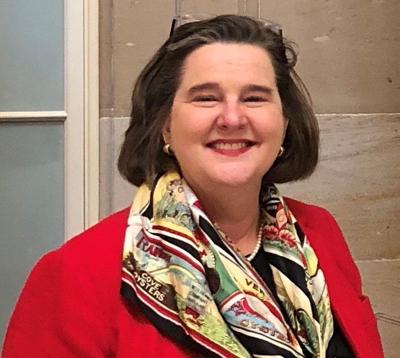We need leadership and optimism, and to remember the old saying “when life gives you lemons, make lemonade.”
Many people want to help in the short-term “let’s get back to work” efforts. We are fortunate to have the leadership of Gov. John Bel Edwards, who is a steady hand in a crisis, and who wants to bring people together and solve problems. So yes, we need an immediate strategy, but we also need to find a way to think bigger and more long term, through ideas of the Resilience Commission, the LABI Business Task Force, the Legislative Task Force and all the other well-intentioned efforts of think tanks and business groups, nonprofit advocacy organizations and philanthropic groups.
Louisiana needs to take a moment and catch our breath and seize this opportunity to re-envision, reinvent and renew our state. We live in a reactive mode to crisis and are stymied by the politics of the status quo.
The real question is can Louisiana capitalize on a pandemic and take a hard look at how to rebuild our communities, our education systems, our health care delivery system and our diverse regional economies. Is now the right time to think bigger about our future? Can we assess where we are and consider where we want to be as a state? Can we find an opportunity to challenge the underlying assumptions of our economy and our workforce? Can we invite more people into the discussion to plan and implement a more resilient Louisiana?
Can we transform Louisiana?
Even after the devastation of Katrina and Rita when the whole world saw the plight of the poor in New Orleans, we did not succeed in building back stronger and better for everyone. There are many reasons that Louisiana is still last in every indicator of health, education, economic self-sufficiency with issues around race, access to capital, housing quality and affordability. So many times, we addressed every problem from the vantage point of what is in the best interest of big business and the status quo. The question was “how much can the men at the top make and how little can we get away with paying the people who are on the front lines doing the work.”
Louisiana needs a vision for the future that is inclusive and equitable and lifts families out of poverty and on a pathway to prosperity. The world is changing fast and we need to focus on the impact of the pandemic, the role of technology in work and education, and new ways of doing business.
COVID-19 started out as a pandemic that affected everyone, rich and poor, as a great equalizer of keeping people home and away from school and work. Then we realized that the people who had to work were the front-line workers making low wages with fewer options for child care, health care or paid leave. These front-line workers are now hailed as heroes for helping maintain the equilibrium for those at home who need takeout food, groceries and delivery services.
The divide in our state is on full view between poorer working-class families and the families able to work from home and home-school; they have multiple computers and broadband. The latter are inconvenienced by the pandemic, but not endangered.
Longer-term questions need to be addressed. What does it mean to be resilient? What does it mean to address health disparities? What does it mean to reinvent K-12 education and higher education in the age of distance learning? What does it mean to pay a living wage to the front-line heroes? What does it mean to develop a health care system that supports all those families who just lost their jobs and thus their health insurance?
We have an opportunity not to just have the same conversations yet again and continue to put “Band-Aids on bullet wounds.” Normal did not work for everybody in Louisiana, as demonstrated by income inequality, health, economic, education and community disparities.
We have the lemons and now we need to squeeze them and make a bigger pitcher of lemonade so that everyone can have a glass and a seat at the table.
Melissa S. Flournoy, Ph.D., is a former state legislator and board chair of Louisiana Progress Action.


